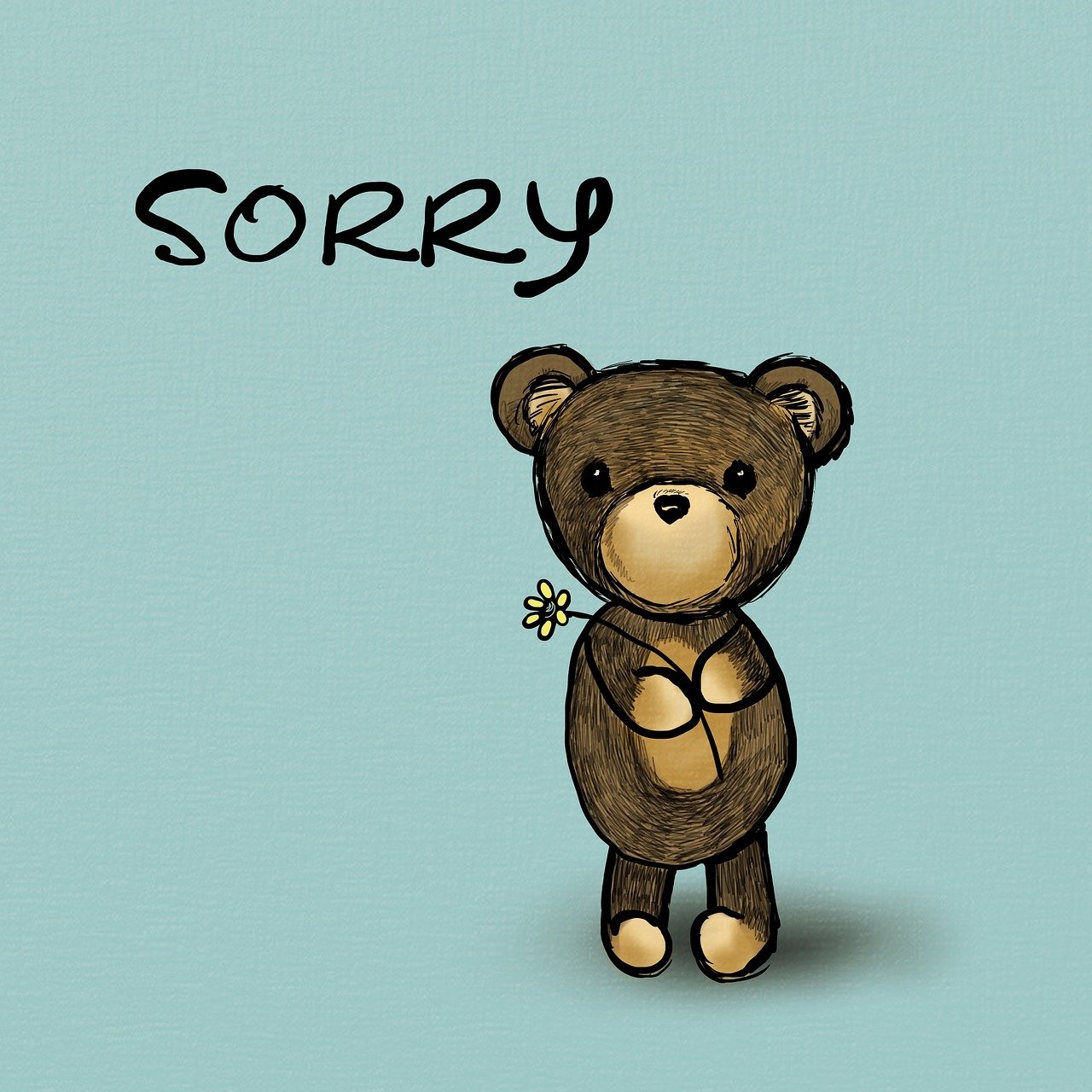
Why Do We Keep Apologizing? A Relational Perspective
Apologizing can be a healthy way to acknowledge mistakes, repair relationships, and show respect. However, some of us seem compelled to apologize constantly—even when it isn’t necessary. This pattern of over-apologizing can reveal deep-rooted emotional and relational dynamics. From a psychoanalytic and relational perspective, frequent apologizing may stem from early life experiences, internalized beliefs about self-worth, and a desire to maintain emotional stability within relationships.
Understanding the Urge to Apologize
At its core, an apology signals that we recognize how our actions affect others, and in relational terms, it’s a way to maintain harmony. But when we apologize excessively, often in situations where there’s no apparent fault, we may actually be managing internal anxiety and fears rather than genuinely responding to the needs of others. Let’s delve deeper into why this happens.
1. Early Life Experiences and Self-Worth
Over-apologizing often traces back to early childhood experiences, especially in environments where love, acceptance, or stability seemed conditional. For example, a child who grows up in a household where they’re frequently criticized or punished for minor infractions might internalize the belief that they’re always on the verge of doing something wrong. This internalized guilt and fear of disapproval can manifest later in life as an automatic reflex to apologize, even when they’ve done nothing wrong.
- Example: Imagine a young woman, Kavya, who frequently apologizes at work for things outside her control—like the weather affecting a scheduled meeting or an unexpected delay in an email response. If she examines her family dynamics, she may recall that as a child, she was often blamed for situations beyond her control, leading her to apologize as a way to preempt criticism or disappointment.
In psychoanalysis, this pattern of over-apologizing can be seen as a repetition compulsion, where individuals unconsciously repeat behaviours from their past in an attempt to master unresolved emotional conflicts.
2. Anxiety and the Desire for Control
Anxiety often fuels the need to apologize. Apologizing can become a coping mechanism for alleviating feelings of uncertainty or discomfort. When faced with situations that trigger anxiety, people may apologize as a way to regain a sense of control and protect themselves from potential conflict or disapproval.
- Example: Ahmad, a college student, often apologizes for taking up “too much space” during discussions, even when he’s asked to share his opinion. For Ahmad, apologizing is a way to avoid potential judgment or rejection. The act of apologizing gives him a sense of control, making him feel as though he’s preemptively addressing any possible disappointment from others.
This behaviour can also be linked to what psychoanalysis calls the superego, an internalized voice of societal and parental expectations. When the superego is overly harsh, individuals experience heightened self-criticism and anxiety, leading them to apologize even when it’s unnecessary.
3. Relational Dynamics and Maintaining Emotional Safety
From a relational perspective, constant apologizing can signal a deep-seated need to maintain harmony and emotional safety. Apologizing serves as a relational tool to bridge gaps or mitigate tension. For individuals who fear conflict, apologies act as a buffer, keeping relationships “safe” by appeasing others, even at the expense of one’s own needs or boundaries.
- Example: For Preeti, saying “I’m sorry” is almost automatic in her close relationships, even when someone else is at fault. Her friends have noticed that she often says, “I’m sorry you feel that way” when they express frustration, even though she isn’t responsible for their emotions. Preeti’s apology is her way of maintaining emotional closeness; in her mind, avoiding friction is more important than pointing out when she isn’t at fault.
Relational therapy suggests that such patterns stem from early attachment experiences. If a person learnt that expressing emotions or asserting boundaries leads to withdrawal or punishment, they may develop an automatic tendency to apologize, using it as a tool to keep relationships stable and prevent abandonment.
4. People-Pleasing and Fear of Rejection
For many, over-apologizing is intertwined with people-pleasing behaviours. People who struggle with self-worth often feel a strong need for external validation and fear disapproval or rejection. Apologizing excessively becomes a way to seek acceptance, implicitly asking for reassurance that they’re not causing harm.
- Example: Abhishekh apologizes for everything, even minor mistakes like mispronouncing someone’s name. Deep down, Abhishekh fears that if he doesn’t apologize, people will think less of him. His apologetic behavior stems from a desire to be seen as kind, non-threatening, and likable—a form of self-protection against the fear of social rejection.
Psychoanalytically, people-pleasing can be linked to the false self-concept, where individuals suppress their authentic feelings to meet the perceived needs of others. Over time, people-pleasers may lose touch with their own needs and boundaries, resulting in excessive apologizing.
5. Difficulty Asserting Boundaries
Some people find it difficult to assert their boundaries, and apologizing becomes a way to navigate this discomfort. When boundaries feel too intimidating or unfamiliar to set firmly, an apology can serve as a “softening” mechanism that minimizes potential backlash.
- Example: Somya often says, “I’m so sorry, but I can’t make it,” instead of simply stating her unavailability. Her habit of apologizing reflects an underlying discomfort with setting clear boundaries, stemming from a fear of being seen as inconsiderate or selfish.
In relational therapy, developing a stronger sense of self and autonomy can help individuals move away from excessive apologies. Building confidence in setting boundaries allows people to communicate directly and clearly without feeling the need to diminish their own needs through apologies.
Breaking the Cycle of Over-Apologizing
Recognizing and shifting this pattern of over-apologizing requires self-awareness and a willingness to confront the underlying emotions and beliefs. Here are a few steps toward understanding and addressing this behaviour:
- Notice the Context
Begin by paying attention to when you feel the urge to apologize. Are there specific situations or people that trigger this response? Are you apologizing for something beyond your control or for simply expressing yourself? - Pause and Reflect
Before automatically saying “I’m sorry,” take a moment to reflect. Ask yourself, “Is this apology necessary? Am I genuinely at fault, or am I apologizing out of habit?” - Challenge Internalized Beliefs
Reflect on the beliefs fueling your need to apologize. Do you feel responsible for others’ emotions? Are you afraid of conflict or rejection? Consider how these beliefs developed and whether they’re serving you. - Practice Setting Boundaries
Practising assertiveness and boundary-setting can help reduce the need to apologize as a form of relational maintenance. Remind yourself that it’s okay to say “no” or to express discomfort without apologizing for your needs. - Replace Apologies with Gratitude
In situations where you feel compelled to apologize for things like “taking up time” or “asking for help,” try expressing gratitude instead. For instance, say, “Thank you for listening” instead of “I’m sorry for venting.”
Final Thoughts
Over-apologizing can be a deeply ingrained habit, often rooted in complex emotional and relational experiences. Psychoanalysis and relational perspectives remind us that our behaviours don’t exist in isolation but are intertwined with our pasts, our anxieties, and our desires for connection. By examining these underlying dynamics, we can start to break free from the compulsion to apologize unnecessarily. Cultivating self-awareness and practising self-compassion helps us establish healthier boundaries and communicate more authentically—allowing us to connect without diminishing our own worth in the process.
As relational psychoanalyst Jessica Benjamin notes, “Recognition of the other is a recognition of the self.” When we honour our own needs without feeling the need to apologize for them, we create space for authentic, balanced relationships where mutual respect can flourish.
Related Posts
Why Do We Always Push Ourselves Beyond Our Limits?
In today’s fast-paced world, the pressure to push ourselves beyond our limits...
The Socio-Psychogenesis of Suicide in Kota: A Psychologist’s Reflections
As a psychologist working in Kota, I am deeply immersed in the lives of students...


